 Resume writing is, in a way, an art form. It takes practice and you’ve got to stay up-to-date with changing trends and expectations. The resume you used to get a job 10 years ago may not be as beneficial in today’s job market. Job seekers often have many questions about what their resume should or shouldn’t look like or include in order to make the strongest impression. We’ve rounded up some common questions faced by job seekers and guidance on how to proceed.
Resume writing is, in a way, an art form. It takes practice and you’ve got to stay up-to-date with changing trends and expectations. The resume you used to get a job 10 years ago may not be as beneficial in today’s job market. Job seekers often have many questions about what their resume should or shouldn’t look like or include in order to make the strongest impression. We’ve rounded up some common questions faced by job seekers and guidance on how to proceed.
- Should my resume only be one page?
Page length is one of the most common resume conundrums. For a majority of job seekers, two pages is more realistic in order to fit their most relevant experience, achievements, and qualifications. Trying to cram it onto a single page can mean making your resume too text-heavy and hard to read or eliminating important information. One page may work for new graduates, but two is more common for those with a few years of experience. Senior level employees may find they need three pages to capture the essentials, but their resume should not exceed this.
- Why don’t I need an objective anymore?
Objectives are implied – your goal is to get the job you are applying for. Stating that you want to make a difference and put your skills to use also goes without saying. A summary of qualifications is much more effective at providing a strong start to capture the employer’s attention and show what you have to offer.
- Where do references go? And shouldn’t I say I have them?
“References available upon request,” or the more archaic practice of listing them on your resume, is long gone. Employers expect that if they ask you for references, you will provide them. Including them on your resume wastes valuable space that you could use for more important details. Keep your references on a separate sheet of paper that you can present when asked.
- Should I list my entire career history?
Not necessarily. Going back 10 to 15 years should suffice. Employers are more interested in recent work experience and what you’re able to do now. This generally encompasses the skills you have built over the previous years. Any more than 15 years is probably irrelevant by now. You could also leave off short-term positions that only lasted a few months and didn’t have much impact on your career. These could be included in more in-depth paperwork filled out later.
- Do I need more than one version of my resume?
Probably not; at least not entirely. Having one main version of your resume that you adjust for different job openings is probably your best bet. After all, your job history doesn’t really change, though what you emphasize might. If you are looking at two significantly different fields of work you may benefit from two resumes, but most people can get by with one which they adapt accordingly.
- How can I make my resume appeal to scanning systems like ATS?
Structure your resume in a way that is clear and concise using familiar headings. Incorporate keywords directly from the job opening as these will be words and phrases the scanner is most likely looking for. Although you should have a section of core competencies at the top, also use these phrases in context in the body of your resume. Avoid using images, graphics, text boxes, and headers/footers as they may not be able to be read by some scanners.
If you feel your resume doesn’t measure up and could use some revamping to boost your chances of landing an interview, contact Chic Resumes at (803) 831-7444 or resumewriting@grammarchic.net.
Amanda E. Clark founded Grammar Chic in 2008. She is a graduate of Eastern Michigan University and holds degrees in Journalism, Political Science, and English. She launched Grammar Chic after freelancing for several years while simultaneously leading marketing and advertising initiatives for several Fortune 500 companies.

